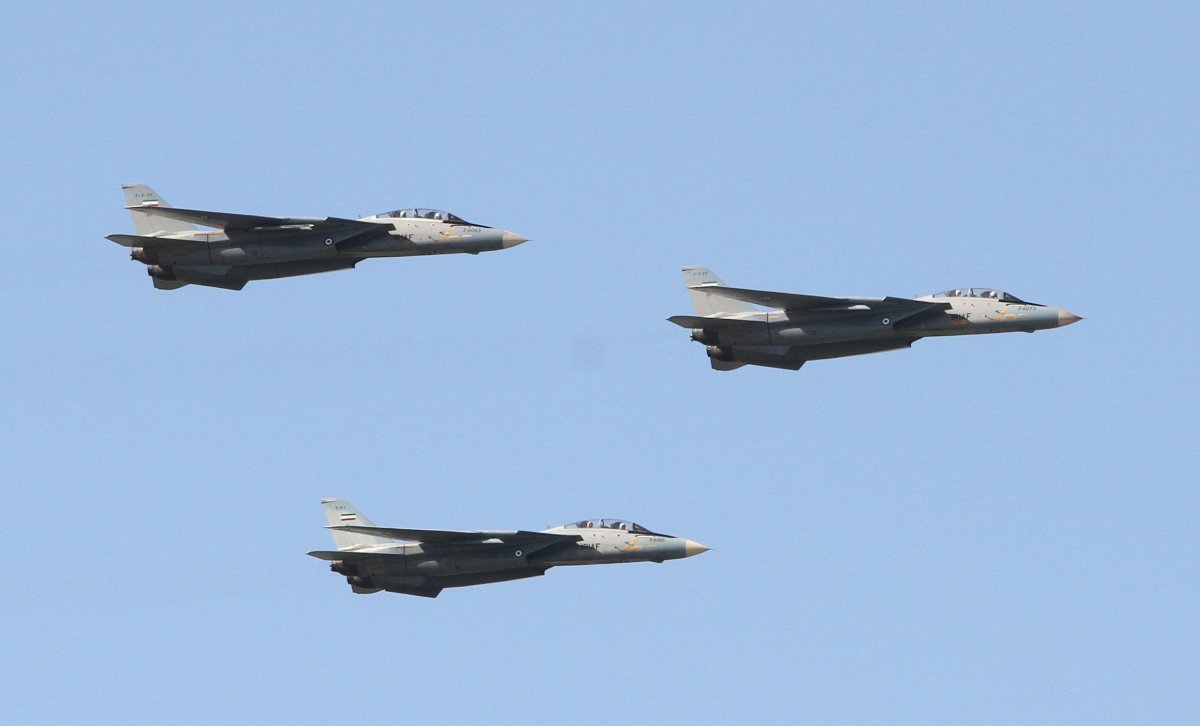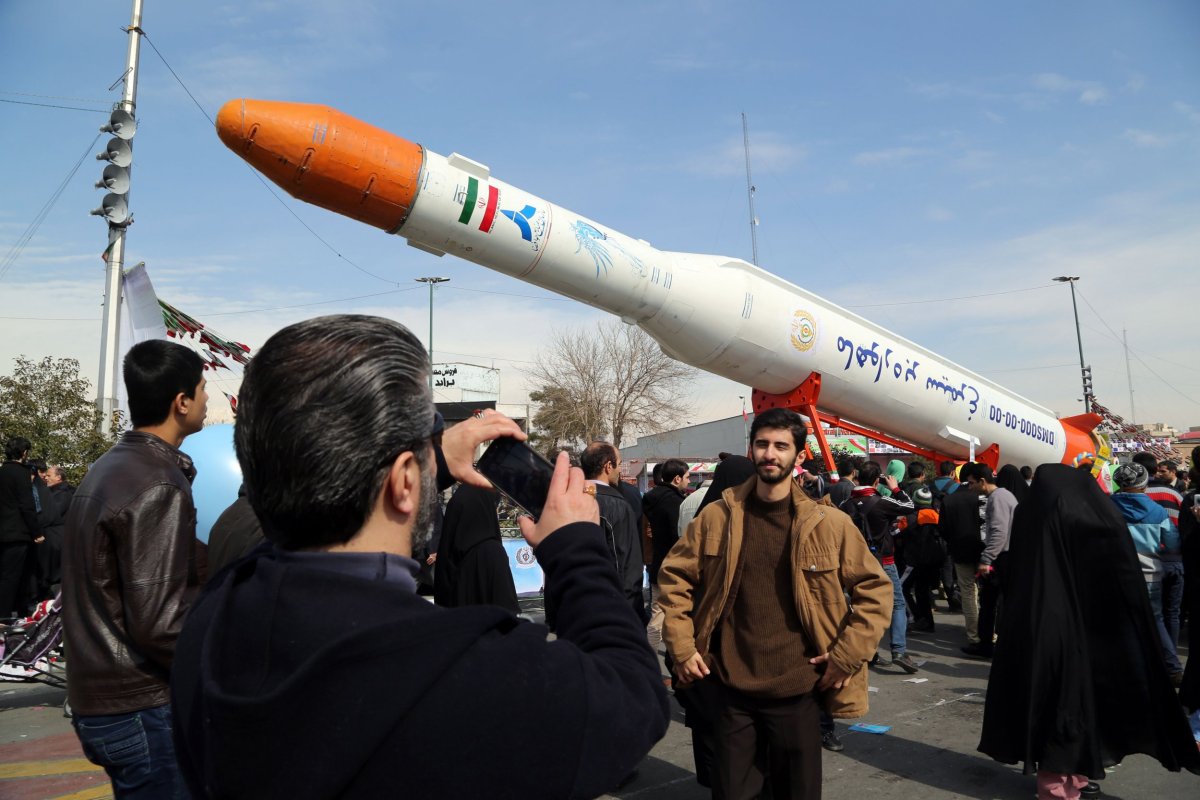On the heels of a massive war game, the head of Iran's air force warned Friday that the country was prepared to handle any potential aggressions ahead of a planned space launch already condemned by the United States.
The Iranian air force wrapped up its Fadayeeyan Harim Velayat 8 exercises, and Brigadier General Aziz Nasirzadeh said the maneuvers were a success. Speaking to journalists on the sidelines, Nasirzadeh said that the drills carried an important message for those at home and abroad.
"Our message to the Iranian nation is that we are ready to respond to any threat," said Nasirzadeh, according to the semiofficial Tasnim News Agency.
"Our message to the regional nations and neighboring countries is a message of peace and friendship, because the more prepared we are, the better regional security is provided, and there is no need for the presence of foreigners in the region," he continued in a speech that came just as the U.S. had reportedly begun its withdrawal from Syria, an Iranian ally that views the U.S. as an occupying power.

Iran's military moves come in the context of a decadeslong dispute with its top foes: the U.S., Israel and Saudi Arabia. Since the 1979 Islamic Revolution that brought the current clerical leadership to power in Tehran, Iran has sought to expand its regional influence and enhance its own military prowess via the development of new technologies and the mobilization of Shiite Muslim movements across the Middle East.
A number of these Iran-backed movements in countries like Iraq and Syria have contributed extensively to battles against the Islamic State militant group (ISIS), which the U.S. has fought in a separate campaign. The two have accused one another of destabilizing the region, however, and the Trump administration has been especially critical of Iran's foreign policy as the White House abandoned a landmark nuclear deal in May, reimposing strict sanctions despite pleas from European allies.
In addition to Iran's alleged support for groups designated terrorist organizations by the State Department, Tehran's ballistic missile development has proven a major point of contention with Washington. Iran already commands the largest and most sophisticated missile program in the region and has planned to send two new satellites into orbit via launches the U.S. claimed were violations of the resolution that accompanied the Iran deal.
Iranian President Hassan Rouhani told attendees of a ceremony commemorating the late Ayatollah Akbar Hashemi Rafsanjani that he was "proud of our defensive and scientific missiles" and that "we are sending two satellites to space soon."

Secretary of State Mike Pompeo claimed last week that the launches "incorporate technology that is virtually identical to that used in ballistic missiles, including in intercontinental ballistic-missiles," which is a violation of United Nations Security Council Resolution 2231, which prohibits Iran from testing nuclear-capable weapons. Iranian Foreign Minister Mohammad Javad Zarif responded on Twitter, pointing out that Pompeo appeared to use language associated with the earlier Resolution 1929, which was terminated after the adoption of 2231 and the Iran deal.
The top diplomats continued to swap rhetorical blows as Pompeo embarked on a "counter-Iran revolution" tour of the Middle East. On Thursday at the American University of Cairo, he railed against the longtime foe and said that unlike Iran, "America has always been a liberating force, not an occupying power, in the Middle East." Zarif hit back on social media, arguing that "chaos, repression & resentment follow" U.S. footprints in the region.
Pompeo told Fox News on Friday that the U.S. would host a summit next month in Poland that would focus on Iran and its ties across the region.
Uncommon Knowledge
Newsweek is committed to challenging conventional wisdom and finding connections in the search for common ground.
Newsweek is committed to challenging conventional wisdom and finding connections in the search for common ground.
About the writer
Based in his hometown of Staten Island, New York City, Tom O'Connor is an award-winning Senior Writer of Foreign Policy ... Read more
To read how Newsweek uses AI as a newsroom tool, Click here.








